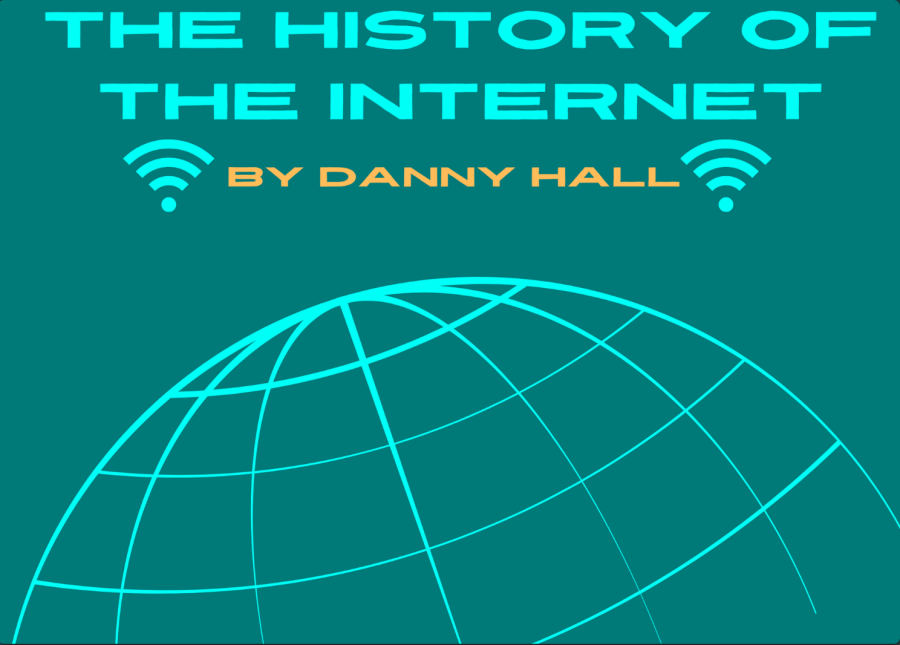THE HISTORY OF THE INTERNET
The Origins Of The World Wide Web
The internet is essential to modern life. These days, people shop online, people have entire conversations online, and as iUP students, we even go to school online. Everything people dreamed of being able to do 50 years ago is possible now thanks to the ever-growing machine that is the world wide web. Now that the present-day impact of the internet has been observed, it’s time to go back to the past when the internet was just a rosebud that was still yet to blossom.
Where It All Began
The internet has been around for longer than most would think. Back in the 50s, the United States was in the middle of the Cold War with the Soviet Union, and the government needed a way to communicate with each other in a way that could not be affected by any potential nuclear attacks. They decided they would use a system of communication involving computers, which in the 50s were humongous machines that only a select few were allowed to use. A decade later in the 60s, a scientist named Lawrence Roberts used a telephone line with a modem inside to make two separate computers communicate from distant locations, or ancient text messaging in a sense.
Roberts created computer networks for ARPA (the Advanced Research Projects Agency), which was formed earlier under Eisenhower with the same purpose of being a “safety net” form of communication in case the US got attacked by a nuclear strike. Eventually, in the 70s, the so-called “ARPANET” expanded further into an interconnected network of multiple networks spread across the globe, which was also known as the internet. However, the ARPANET was decommissioned in the 90s. Though, when it comes to internet history, that’s only the beginning.
Growing, Growing, Growing
By the middle of the 80s, the internet started being used by a larger group of people. With the advent of Email, they were now able to send messages and talk to each other. With various fixes to the system over several years, the internet was made easier to use, which led to a massive increase in popularity. By the year 1996, there were over 100,000 websites, and what was known as the “worldwide web” was starting to become a major factor in life. People were able to search for things and ask questions on a bunch of different search engines, including the one that most know as Google.
Buying The Stock
From 1998-2000, technology shares were being bought and sold everywhere. This ended up forming the “Dotcom Bubble,” where venture capitalists all around were buying stock in this new medium of life, only for it to end up collapsing. Many online retailers shut down and lots of money was lost once the bursting of the bubble happened. The internet, however, kept on moving in spite of the bubble’s burst
New Friendships
In 2004, a group of Harvard students came up with an idea that would change the internet forever. At first, it was just a small unimportant internet application that was used for students at the college to virtually chat with each other. That tiny little internet service is now known as the massive social media app known as Facebook. There were many sites just like Facebook that worked like Facebook and were used like Facebook, but none of them could last against this potential social media giant. Ever since the beginning of Facebook, many other popular apps started to roll out. In 2005, just one year after Facebook was created, YouTube hit the web as an easy way to find and share videos. Later in 2007, Twitter was born as a way for people to share their thoughts and feelings in a small number of characters. More apps were created over time, and then they started evolving more and more.
The Internet and iUniversity Prep
iUP is, of course, an online school, so the education process here relies heavily on the internet. Every single part of the internet’s formation listed earlier only leads up to where we are now. Going to school online, doing work online, chatting with fellow students online, and even this article right here are products of the internet. Without the world wide web, this school would be nothing, and its wonderful teachers and amazing students would be leading separate lives, not having the common experience of going to one of the highest-ranked online schools in the country.
The Present And The Future
Now, it is the year 2022. Ever since COVID hit 2 years ago, the internet has basically become most people’s lives. Here at iUP, the entire curriculum is built around the internet, and all of our interactions happen here on the web. Years from now, with the help of the metaverse that is still yet to come, people will be able to go to the moon without having to leave their house. If 60 years of the internet’s growth has taught the world anything, it’s that anything is possible in the next 60.
Sources
“A Short History of The Internet.” National Science And Media Museum, 3 December 2020 https://www.scienceandmediamuseum.org.uk/objects-and-stories/short-history-internet
History.com Editors. “Facebook Launches.” History.com, A&E Television Networks, 2 Feb 2021, https://www.history.com/this-day-in-history/facebook-launches-mark-zuckerberg

My name is Danny Hall and I will be a Co-Associate Editor at iHoot this year. I'm a senior and this is my 5th and final year at iUP and iHoot. I previously...







